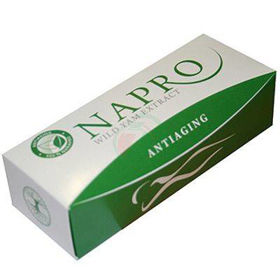Customer question:
Can testosterone pills be bought in a pharmacy? Anonymous customer's question
Pharmacist's answer:
Testosterone replacement therapy (TRT) comes in various forms, including gels, patches, injections, and pills. You should consult your doctor if you think you have too low a testosterone level or are considering testosterone treatment.
While prescription testosterone is regulated, many over-the-counter supplements claim to increase testosterone concentrations. These products do not contain testosterone but usually consist of herbal and other natural ingredients that are supposed to increase testosterone levels through their mechanisms of action.
Are there nutritional supplements to increase testosterone?
Various nutritional supplements and herbs are marketed to increase testosterone levels. It is important to note that while some have supporting research showing potential benefits, others have limited or mixed evidence of their effectiveness. Furthermore, individual responses may vary, and the overall effect may be modest. Before starting to take any supplement for hormone modulation, it is still recommended that you consult your doctor.
The supplement industry varies in terms of quality control. Not all products contain what they claim, and some even contain impurities. Although many supplements are generally safe for most people, they can interact with medications and have potential side effects. Many supplements have limited, inconclusive, or mixed evidence of their effectiveness.
What causes low testosterone in men?
A decline in testosterone levels can occur naturally with age, but other factors can also cause a medically significant decrease in testosterone, known as hypogonadism. The causes of low testosterone can be classified into primary and secondary causes.
Primary hypogonadism:
- Congenital abnormalities: conditions such as Klinefelter syndrome, where males are born with an extra X chromosome.
- Physical damage to the testicles: damage, castration, or torsion of the testicle can cause testicular failure.
- Infection: mumps orchitis, inflammation of the testicles caused by the mumps virus, can impair testicular function.
- Radiation or chemotherapy: these treatments can damage testicular cells and reduce testosterone production.
- Aging: as men age, there is a natural decline in testosterone levels. However, not all older men will have clinically low testosterone.
- Chronic diseases: Cirrhosis of the liver, chronic kidney disease, and other chronic conditions can cause primary hypogonadism.
Secondary hypogonadism:
- Pituitary gland disorders: Tumors, surgery, radiation, or diseases affecting the pituitary gland can affect its ability to signal the testicles to produce testosterone.
- Disorders of the hypothalamus: Conditions that affect the hypothalamus, such as tumors, can interfere with testosterone production.
- Medications: Certain medications, such as opioids and steroids, can lower testosterone levels.
- Obesity: being overweight can reduce testosterone production.
- Inflammatory conditions: Diseases such as sarcoidosis, histiocytosis, and tuberculosis can affect the hypothalamus and pituitary gland.
- Genetic and developmental disorders: Conditions such as Kallmann syndrome can affect the production of gonadotropin-releasing hormone (GnRH).
- Stress: chronic stress that leads to long-term increases in cortisol can inhibit the hypothalamic-pituitary-testicular axis.
Combined causes:
- HIV/AIDS: can affect the testes and hypothalamus/pituitary and lead to low testosterone.
- Hemochromatosis: an excess of iron in the blood can affect the functioning of the testicles and pituitary gland.
- Alcohol and drugs: Chronic alcoholism and certain medications can reduce testosterone production by affecting the testicles and brain.
Other factors:
- Nutritional deficiencies: Severe protein-calorie malnutrition, zinc deficiency, and chronic diseases can lead to reduced testosterone levels.
- Systemic illness: Severe surgery or great physical stress can temporarily lower testosterone.
- Normal aging: testosterone levels naturally decline as men age, but this decline is gradual and may not cause clinical symptoms of hypogonadism in all men.
Interesting reading: Erection pills in pharmacies
Interesting reading: Tretinoin krema lekarna









 Facebook
Facebook
 Instagram
Instagram
 info@moja-lekarna.com
info@moja-lekarna.com

